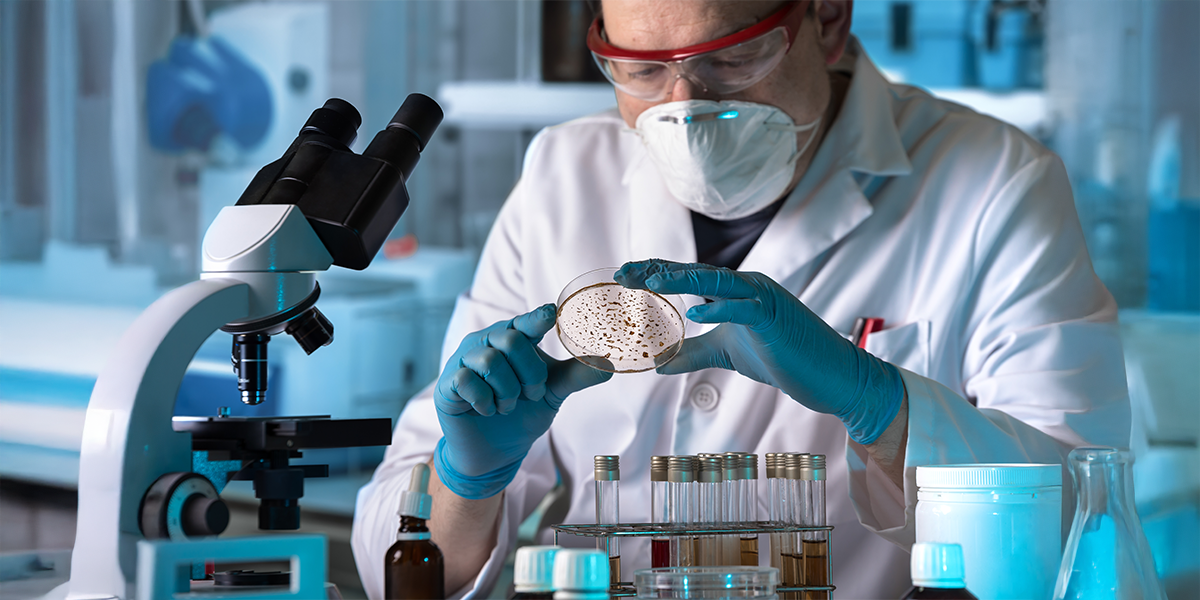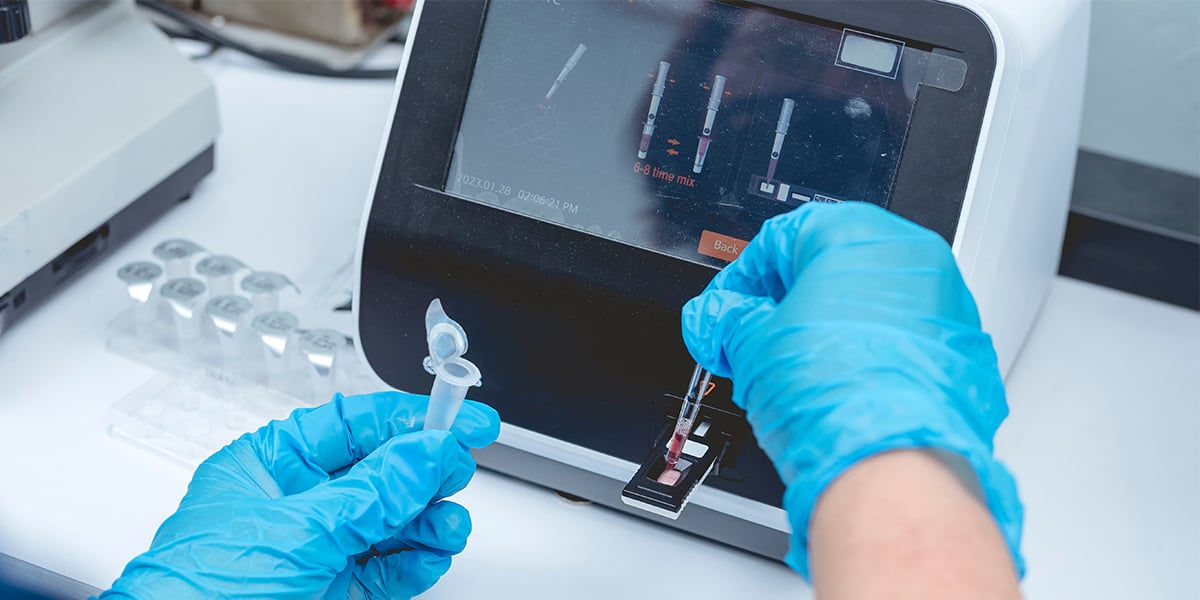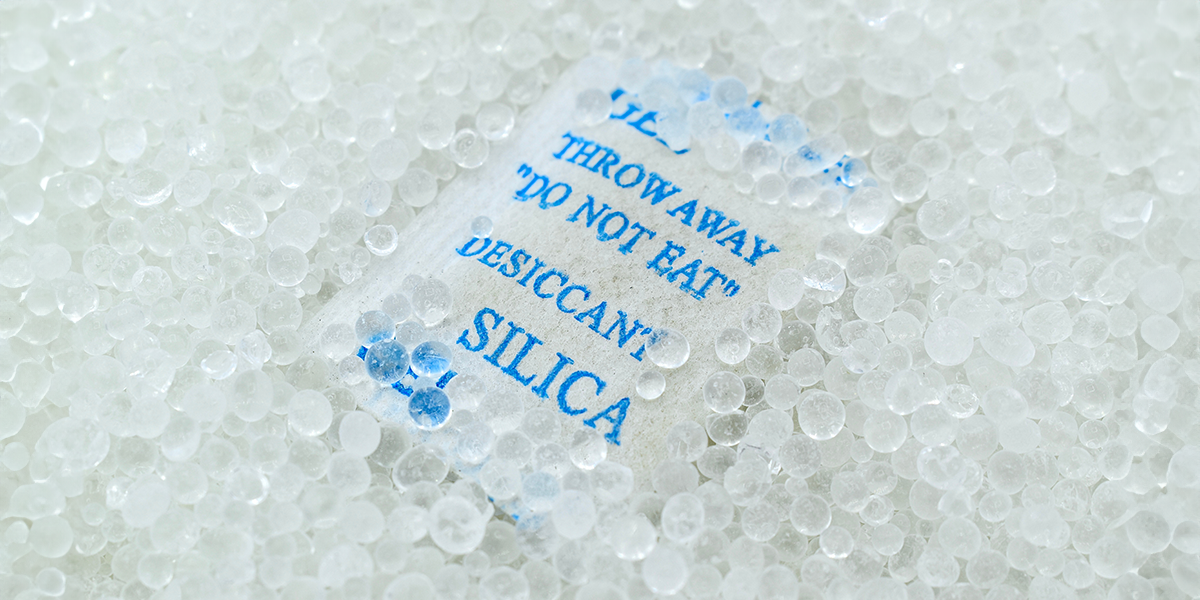Selecting a Pump for Hematology Analyzers
Key Takeaways / Highlights Piston pumps(rotating and reciprocating) offer unmatched precision, chemical resistance, and longevity—ideal for...
2 min read
Kyle Burrows : Updated on January 22, 2026

Microbiology analyzers process and identify microorganisms (i.e., bacteria and pathogens) in diagnostics, food safety, and water treatment. These OEM devices are also used in the pharmaceutical industry for antimicrobial susceptibility testing during antibiotics research, where lab technicians dilute and mix microbial samples with reagents and allow them to grow for further analysis. Selecting the right microfluidic pump for a microbial analyzer involves tackling some common challenges. We've placed these issues under a microscope to analyze the key factors that will ensure reliable results across various applications:
Accuracy, Consistency, & Sterility
Challenge: Microbiology analyzers require pumps that handle tiny liquid volumes with precision while maintaining sterility. Inaccurate dispenses or contamination can lead to unreliable results.
Solution: Ensure the pump offers high accuracy and consistent precision. Keep in mind that extra flushing will be required for biohazardous microbial samples. Fluid Metering’s FENYX® Variable Dispense pump allows for precise control and flexible adjustment of the dispensing angle, enhancing accuracy while significantly reducing downtime between priming, dispensing, and flushing cycles.
Chemical Compatibility & Durability
Challenge: Pumps must be compatible with various chemicals and maintain durability to avoid contamination and degradation.
Solution: Opt for pumps made from chemically inert materials like ceramic. Fluid Metering's CeramPump® valveless piston pumps are non-reactive and highly resistant to wear, making them ideal for use with biological samples and reagents.
Optimal Flow Rate
Challenge: The flow rate of a pump can impact sample processing speed and accuracy. Too fast, and you risk incomplete reactions; too slow, and results are delayed. Improper flow rates can also damage or kill microorganisms, rendering them useless for functional analysis.
Solution: Utilize pumps with easily adjustable flow rates. Fluid Metering’s ceramic piston pumps provide precise setting and control over flow rates to preserve fragile microorganisms and allow optimal analyzer performance.
Stable Vacuum Pressure
Challenge: Stable vacuum pressure is essential for liquid aspiration and reagent dispensing. Inconsistent pressure can lead to cross-contamination.
Solution: Choose pumps with reliable vacuum pressure capabilities. Fluid Metering's ceramic piston pumps maintain stable vacuum pressure, ensuring accurate fluid handling and preventing cross-contamination.
Environmental Conditions
Challenge: Environmental factors like temperature, humidity, and exposure to harsh chemicals can negatively impact pump performance within an analyzer.
Solution: Select pumps that are resistant to environmental variations. Fluid Metering pumps are highly durable and perform consistently under varying environmental conditions, making them a robust choice for use in a micro analytical lab or at the side of a stream in the Rocky Mountains.
Long-Term Performance & Costs
Challenge: Evaluating the long-term performance and efficiency of a pump is vital for providing reliable results, minimizing maintenance costs, decreasing operational expenses, and increasing lab productivity.
Solution: Look for pumps with high life expectancy, low maintenance needs, and consistent accuracy over time. Fluid Metering pumps excel in these areas, providing long-term reliability for labs, research facilities, and testing centers. They simplify fluidic architecture with minimal moving parts, require infrequent calibration, reduce downtime, and offer consistent performance, making them an efficient, cost-effective choice in the long run.
Our Analysis
At first glance, selecting the right pump for microbiology analyzers may seem like a slurry of overwhelming obstacles. However, upon further analysis, there are several simple solutions to help you provide accuracy, consistency, and efficiency in the microbiology testing process. Fluid Metering pumps offer dependable, long-term remedies to each of these problems, ensuring excellent analyzer performance and reliable results.

Key Takeaways / Highlights Piston pumps(rotating and reciprocating) offer unmatched precision, chemical resistance, and longevity—ideal for...

1 min read
Key Takeaways: Clinical chemistry and immunoassay analyzers require microliter-level precision, fast fluid handling, and contamination...

1 min read
Key Takeaways: Fluid Metering’s precision pumps for silica bead slurries handle particle sizes from 3µm to 800µm with low shear, no entrapment, and...